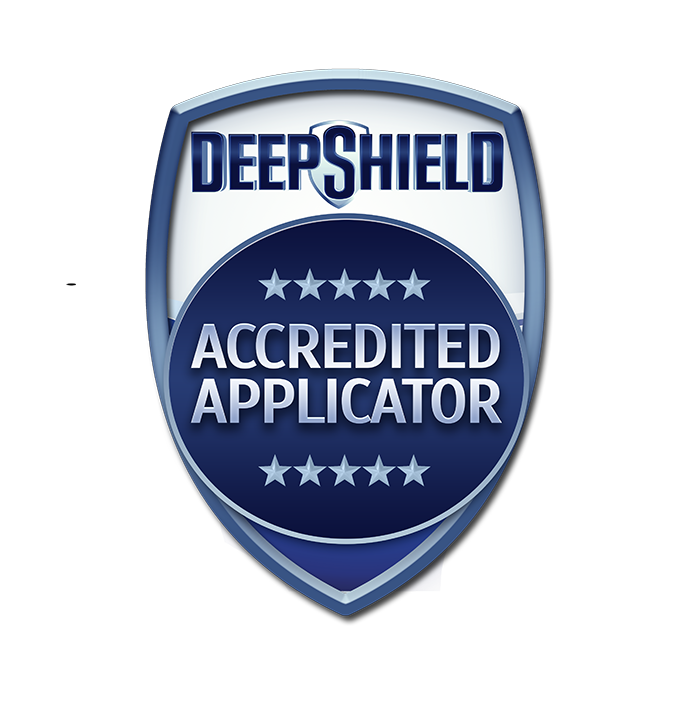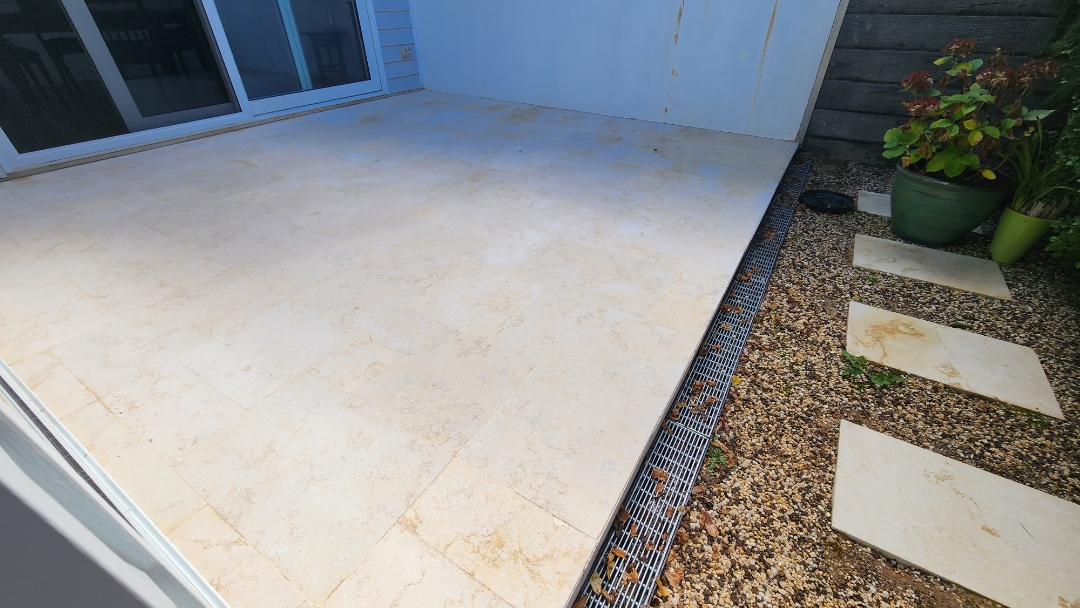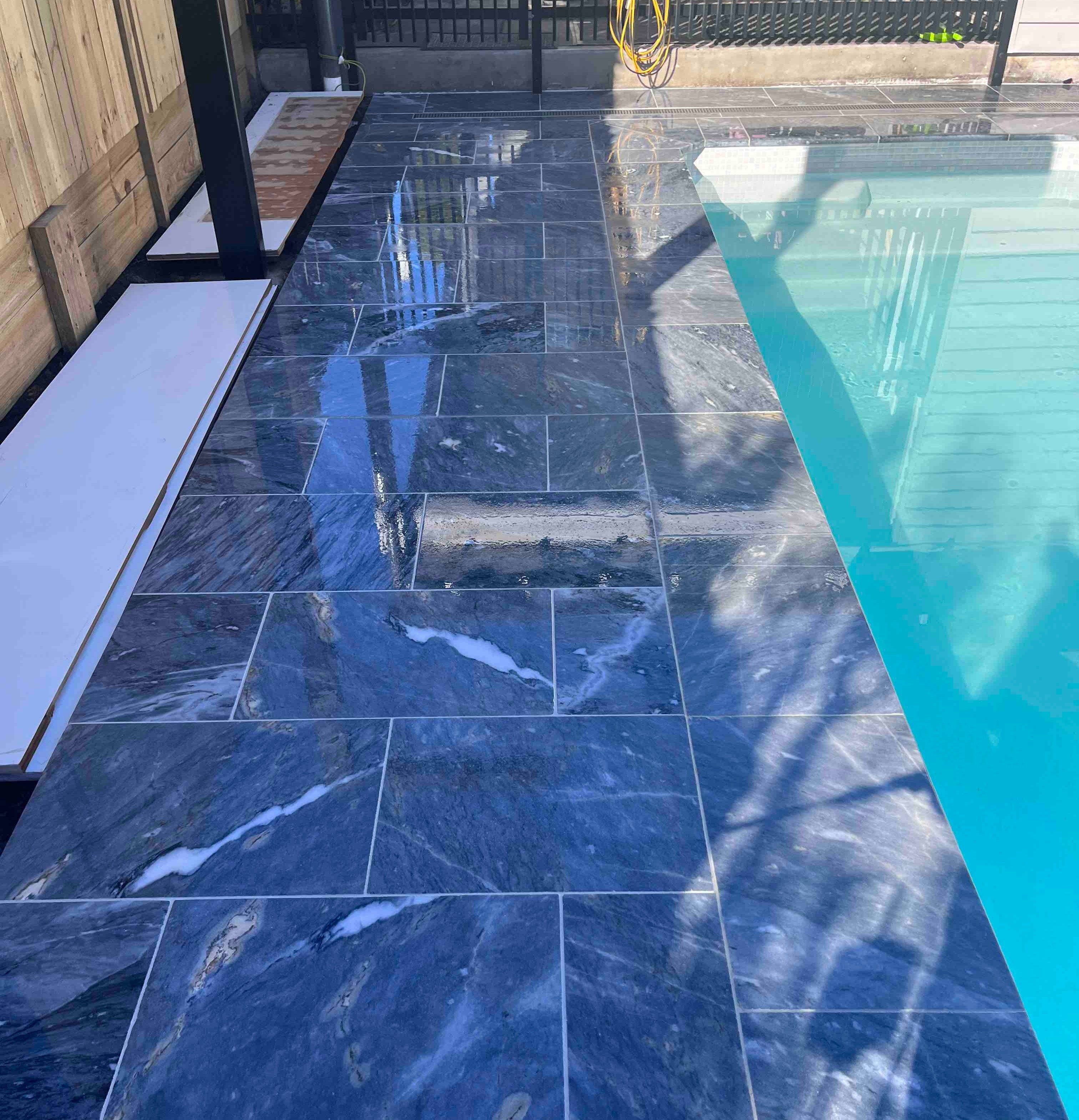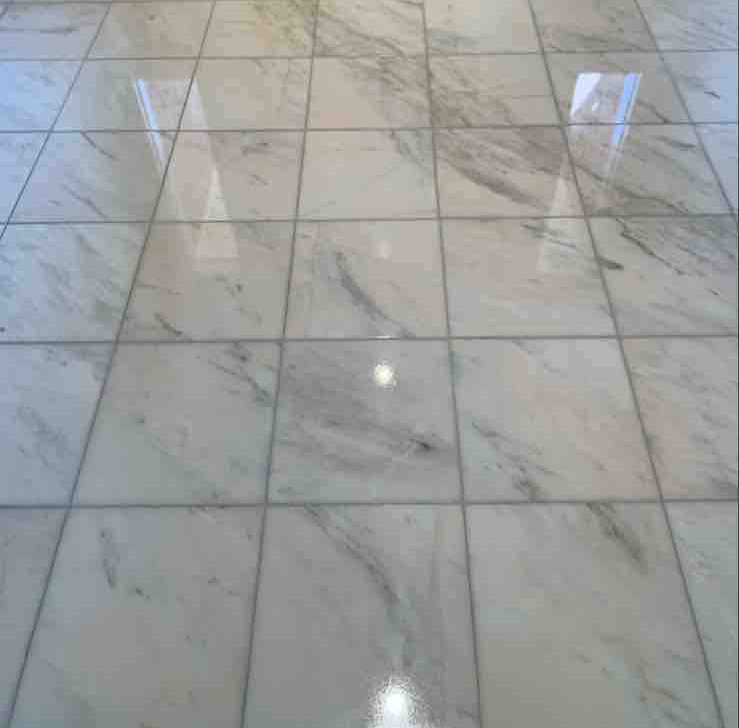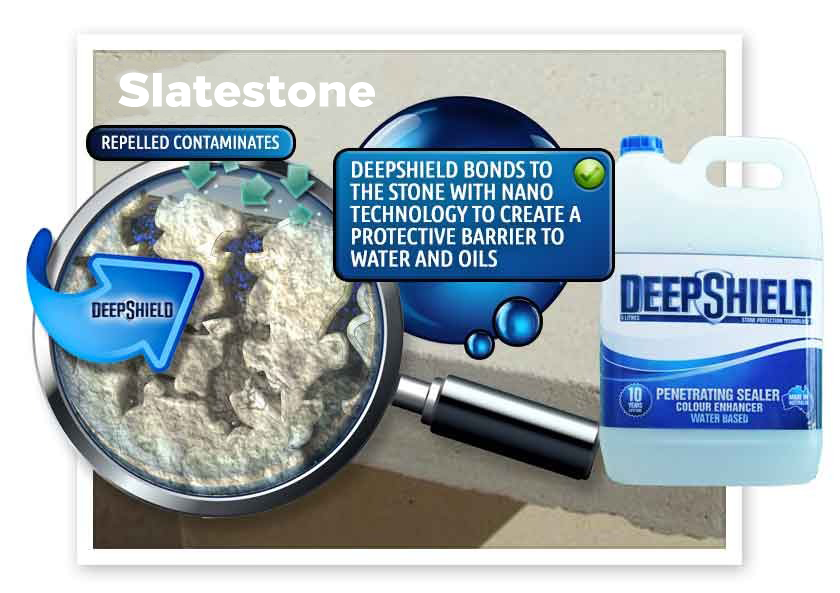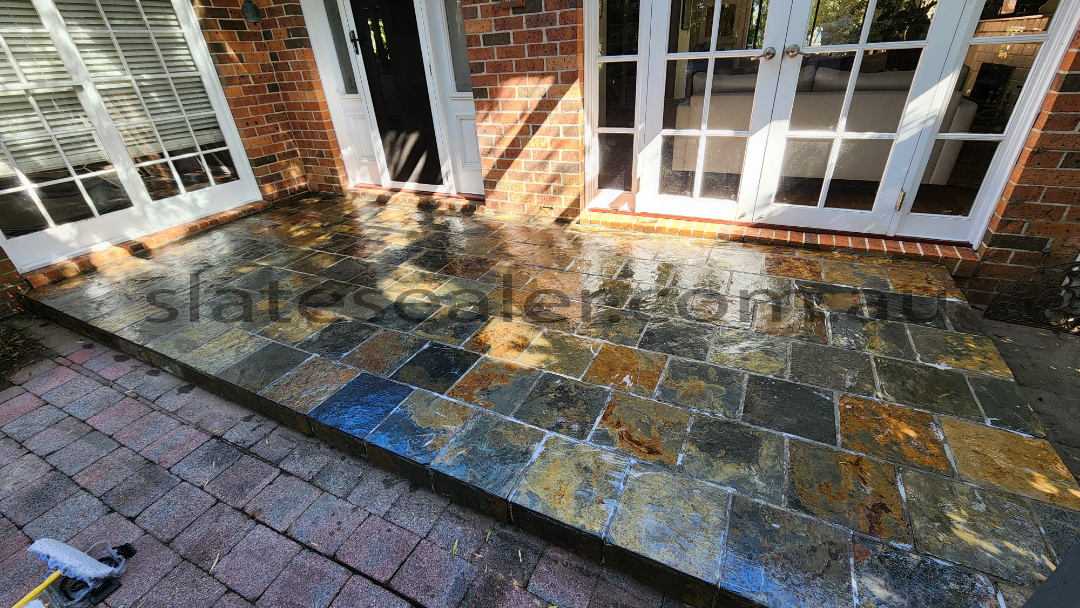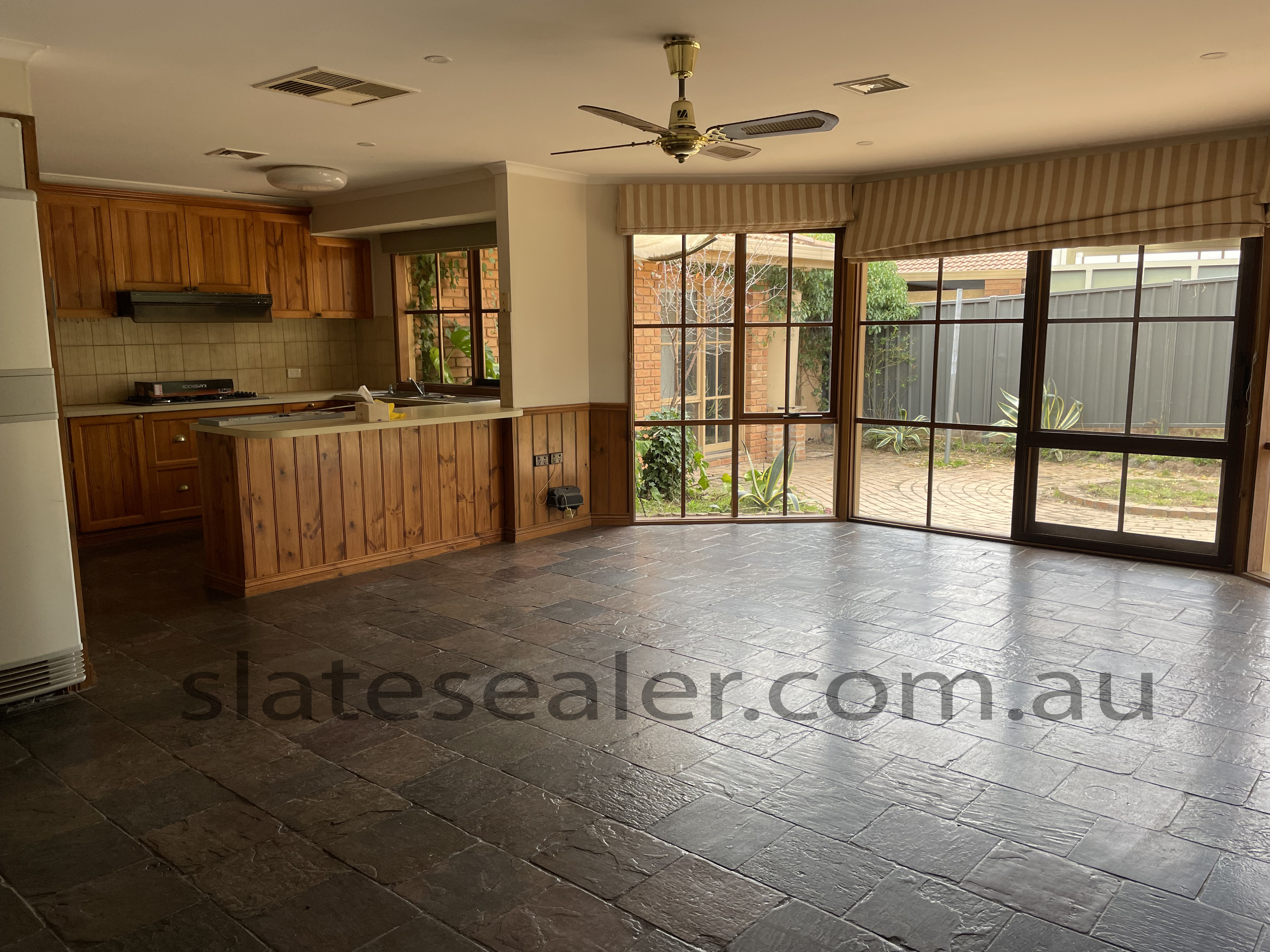1. Topical Sealer (film-forming, coating, or surface sealant)
- Lifespan of 1-3 yearsTopical Sealers are products that sit on top of the slatestone substrate in Ballarat, creating a barrier between the stone and any potential blemish. They are applied to the surface and, once cured, harden to form a visible film. Generally, these sealers may not be suitable for use with materials like slatestone as they restrict the stone's ability to breathe and can become dangerously slippery, especially when wet.
- May be prone to abrasion, resulting in noticeable scuffing or wear.
- Require frequent re-application in Ballarat.
- Can accumulate over time, giving a varnish-like appearance.
- Lower-quality coatings may yellow when exposed to UV light (sunlight).
- May trap moisture in the substrate, leading to issues with efflorescence or damage.
- Longer lifespan due to protection within the substrate
- Resistance to UV light
- Allows the stone to breathe, facilitating moisture escape
- Non-slip surface
- Preserves the natural characteristics of slatestone, which varies in hardness and porosity depending on the finish
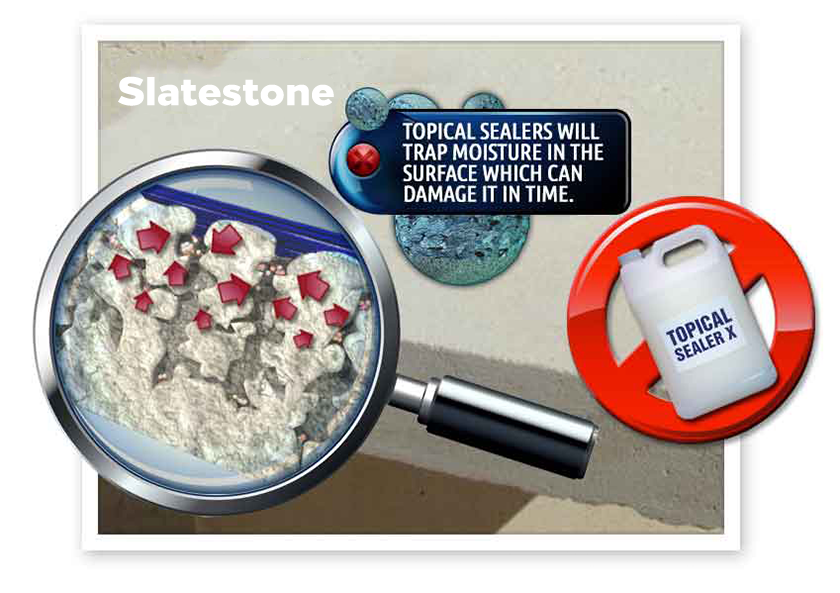
With a lifespan of up to 15 years, penetrating sealants for slatestone offer long-lasting protection in Ballarat. These sealants penetrate deep into the substrate, filling microscopic pores and fissures without altering the natural look or texture of the stone. Unlike film-forming sealers, they provide protection from within the stone, ensuring durability and resistance to UV light.
Key features include in Ballarat:Advanced fluoro-chemical technology, such as that integrated into Australian GOLD sealers in Ballarat, provides superior protection against water and oil-based stains. The micro-molecular formula creates a strong bond with the stone surface, ensuring optimal long-term performance without compromising slip resistance.
A deep penetrating sealer won't affect the slip resistance of your surfaces
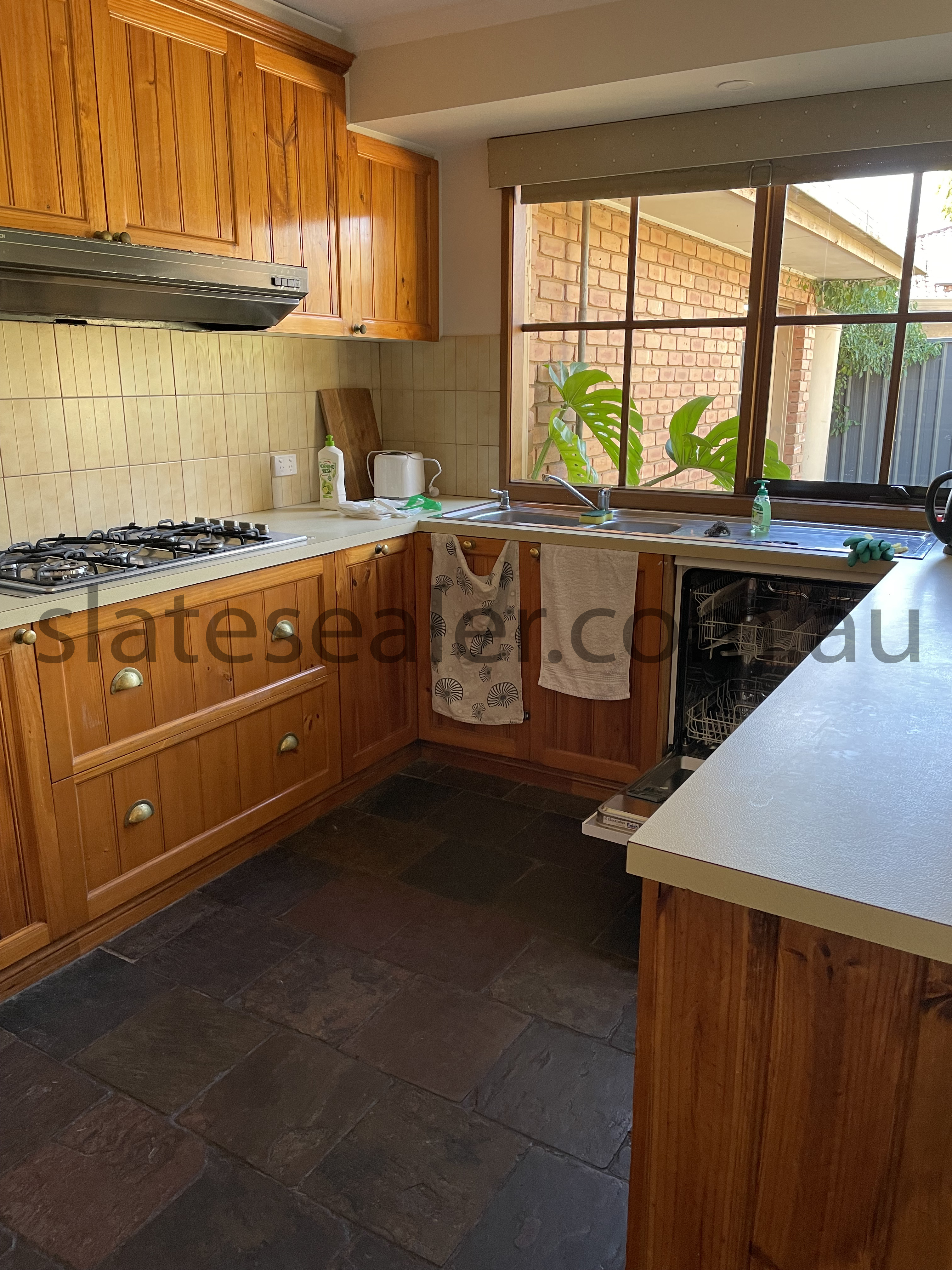
This premium penetrating sealer is suitable for both interior and exterior slatestone tiles in Ballarat. It deeply penetrates the stone, forming an invisible barrier against water and oil-based stains while allowing built-up vapor to escape. Its renowned special molecular structure enhances its resistance compared to other products.



